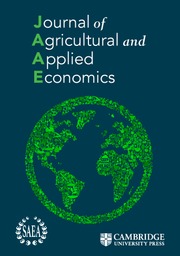No CrossRef data available.
Article contents
Sustaining Animal Agriculture and Environmental Quality in the South: What Happened and Why? Discussion
Published online by Cambridge University Press: 28 April 2015
Extract
German social theorist Ulrich Beck has suggested that the political economy of post-industrial society has shifted away from the competition among relatively well-defined social groups for control of benefit streams resulting from technological and organizational innovations that characterized the roughly 200-year period of industrialization. In its place, we find constantly changing aggregates of individuals engaged in temporary or limited alliances competing to affect the distribution of social, environmental, and economic risks. Beck argues that a complex set of forces has brought about this shift. He mentions many oft noted changes in gender and family roles, in employment patterns, and global interdependencies, but two points are especially relevant to me collection of issues that have been discussed in these four papers.
- Type
- Invited Paper Sessions
- Information
- Copyright
- Copyright © Southern Agricultural Economics Association 1997


